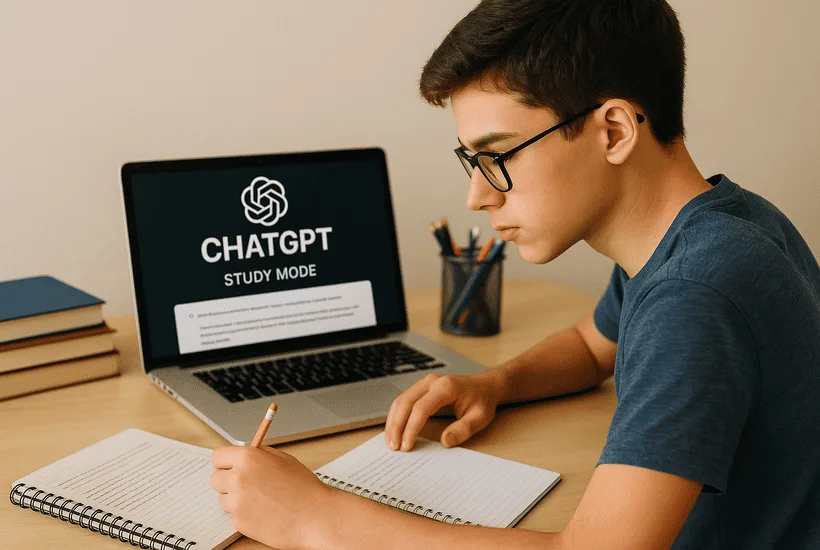- OpenAI introduced a new feature on Tuesday for ChatGPT users called study mode
- The update comes after OpenAI rolled out ChatGPT agent earlier in July, an advanced AI function that can automate complex tasks on the internet
- The key features of study mode include interactive prompts, scaffolded responses, personalized support, knowledge checks, and flexibility
AI company OpenAI introduced a new feature on Tuesday for ChatGPT users called study mode, a tool that students can use to enhance their learning, as per an announcement made by the company.
Study mode has been released with immediate effect for users who frequent the free version of ChatGPT, along with paid subscribers of Pro, Plus, and Team. The update comes after OpenAI rolled out ChatGPT agent earlier in July, an advanced AI function that can automate complex tasks on the internet.
It was announced on X as well by OpenAI’s official X account.
Newsletter
Get weekly updates on the newest crypto stories, case studies and tips right in your mailbox.
“As ChatGPT becomes a go-to tool for students, we’re committed to ensuring it fosters deeper understanding and learning,” reads the X post.
Study mode seeks to emphasize focus on real learning
The Sam Altman-led firm recognises that ChatGPT has been widely used among students for their homework assignments and their examinations. The company states that the new feature will help to strike a fine balance to hone the learning experience of students rather than just providing easy access to the answers.
“When students engage with study mode, they’re met with guiding questions that calibrate responses to their objective and skill level to help them build deeper understanding. Study mode is designed to be engaging and interactive, and to help students learn something—not just finish something,” read the official announcement.
The key features of study mode include interactive prompts, scaffolded responses, personalized support, knowledge checks, and flexibility.
An investigation by The Guardian found as many as 7000 cases of students cheating using AI tools, which equals 5.1 students for every 1000. The survey also found that while AI-related academic misconduct was rising, traditional plagiarism declined in the same period.













